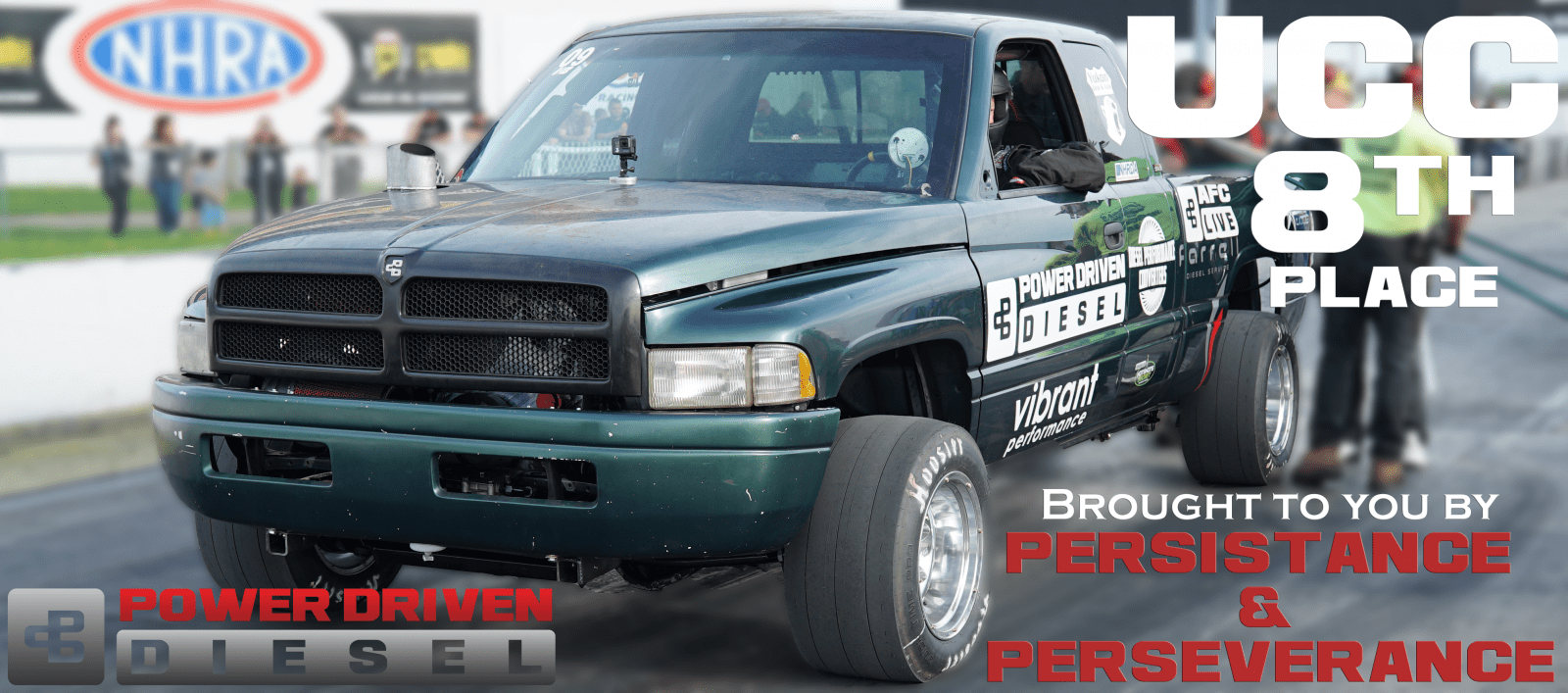Hey there, if you're into engines, machinery, or anything that involves serious power, then you’ve come to the right place. Power driven diesel is not just a term; it's a game-changer in the world of energy and mechanics. Imagine a machine that can pull its weight and then some, delivering performance like no other. That's what we're diving into today. So, buckle up, because we're about to explore the world of diesel power and why it matters so much.
Now, let me ask you this: Have you ever wondered why diesel engines are preferred over gasoline engines in heavy-duty applications? It’s not just about fuel efficiency—it’s about raw power, reliability, and the ability to handle immense loads without breaking a sweat. This article will take you through everything you need to know about power driven diesel, from its history to its modern-day applications.
Before we dive deep, let’s clarify something: Power driven diesel isn’t just about engines. It’s about the entire system that makes diesel-powered machines work seamlessly. From tractors to generators, diesel power is everywhere, and understanding it can open doors to new opportunities. So, let’s get started!
Read also:Alex Fitzpatrick Girlfriend The Ultimate Guide To His Love Life And Relationships
Understanding Power Driven Diesel
What Exactly is Power Driven Diesel?
Alright, let’s break it down. Power driven diesel refers to the use of diesel engines as the primary source of power for various applications. These engines are designed to convert the chemical energy in diesel fuel into mechanical energy, which drives machinery. Unlike gasoline engines, diesel engines operate on compression ignition, making them more efficient and durable.
Here’s a quick rundown of why diesel engines are so special:
- Higher fuel efficiency compared to gasoline engines.
- Greater torque output, perfect for heavy-duty tasks.
- Longer lifespan due to robust construction.
- Lower maintenance costs in the long run.
Now, if you’re thinking, "Why does this matter to me?" well, it matters because diesel power is everywhere. From construction sites to agricultural fields, diesel engines are the unsung heroes keeping things moving.
The History of Diesel Engines
From Rudolf Diesel to Modern-Day Marvels
Let’s take a trip back in time. The story of diesel engines begins with a German engineer named Rudolf Diesel. Back in the late 1800s, Diesel was on a mission to create an engine that was more efficient than the steam engines of his time. In 1892, he patented the first diesel engine, and the rest, as they say, is history.
Fast forward to today, and diesel engines have evolved into high-tech marvels. Modern diesel engines are equipped with advanced features like turbocharging, direct injection, and electronic control systems. These innovations have made diesel engines cleaner, quieter, and more efficient than ever before.
But here’s the kicker: Despite advancements in alternative energy sources, diesel remains a dominant force in industries that require reliable, high-power solutions. And that’s not gonna change anytime soon.
Read also:Tropicale Palm Springs A Paradise Retreat In The Desert
Why Choose Power Driven Diesel?
The Advantages That Set Diesel Apart
So, why should you consider power driven diesel for your projects? Let’s break it down:
- Efficiency: Diesel engines are known for their fuel efficiency, which translates to lower operating costs.
- Reliability: Built to last, diesel engines can handle extreme conditions without failing.
- Power: Need to move heavy loads? Diesel engines deliver the torque you need.
- Environmental Impact: Modern diesel engines are designed to meet strict emission standards, making them eco-friendly options.
And let’s not forget the versatility. Whether you’re running a generator, powering a truck, or operating heavy machinery, diesel engines have got you covered.
Applications of Power Driven Diesel
Where You’ll Find Diesel Power in Action
Now that we’ve established why diesel engines are awesome, let’s talk about where you’ll find them. Here are some of the most common applications:
- Transportation: Trucks, buses, and trains rely on diesel engines for their power and efficiency.
- Construction: Bulldozers, excavators, and cranes use diesel engines to tackle tough jobs.
- Agriculture: Tractors and harvesters powered by diesel engines are essential for modern farming.
- Power Generation: Diesel generators provide reliable backup power in emergencies.
And that’s just the tip of the iceberg. Diesel engines are also used in marine vessels, mining equipment, and even military applications. The possibilities are endless!
Modern Innovations in Diesel Technology
How Diesel Engines Are Evolving
Technology never stands still, and diesel engines are no exception. Recent advancements have made diesel engines cleaner, quieter, and more efficient. Here are some of the coolest innovations:
- Common Rail Direct Injection: This technology improves fuel efficiency and reduces emissions.
- Exhaust Gas Recirculation (EGR): Helps lower nitrogen oxide emissions.
- Diesel Particulate Filters (DPFs): Capture harmful particles before they enter the atmosphere.
These innovations prove that diesel engines are not just here to stay—they’re here to thrive. As technology continues to evolve, we can expect even more impressive advancements in the future.
Environmental Concerns and Diesel
Addressing the Critics
It’s no secret that diesel engines have faced criticism over the years, especially regarding emissions. But here’s the thing: Modern diesel engines are much cleaner than their predecessors. Thanks to advancements like selective catalytic reduction (SCR) and ultra-low sulfur diesel (ULSD), diesel engines are now a viable option for environmentally conscious businesses.
Plus, let’s not forget about biodiesel. Made from renewable resources like vegetable oils and animal fats, biodiesel offers a sustainable alternative to traditional diesel fuel. It’s a win-win for both the environment and the economy.
Cost Considerations for Power Driven Diesel
Is Diesel Worth the Investment?
When it comes to cost, diesel engines require a higher upfront investment compared to gasoline engines. However, the long-term savings in fuel efficiency and maintenance make them a worthwhile choice. Here’s a quick comparison:
- Fuel Costs: Diesel engines consume less fuel per mile than gasoline engines.
- Maintenance: While diesel engines may require specialized maintenance, they generally last longer than gasoline engines.
- Resale Value: Diesel-powered vehicles and equipment often retain their value better than their gasoline counterparts.
So, while the initial cost might be higher, the overall return on investment is significant. If you’re in it for the long haul, diesel is definitely worth considering.
Challenges and Solutions in Diesel Technology
Facing the Future
No technology is perfect, and diesel engines are no exception. Some of the challenges include:
- High Initial Costs: As mentioned earlier, diesel engines can be expensive upfront.
- Emission Regulations: Meeting increasingly strict emission standards can be a challenge for manufacturers.
- Public Perception: Despite advancements, some people still view diesel engines as dirty and outdated.
But here’s the good news: Manufacturers are working hard to address these challenges. From developing cleaner fuels to improving engine designs, the future of diesel looks bright.
The Future of Power Driven Diesel
What Lies Ahead
As we look to the future, it’s clear that power driven diesel will continue to play a vital role in various industries. With ongoing advancements in technology and increasing demand for sustainable solutions, diesel engines are poised to remain relevant for years to come.
And let’s not forget about hybrid diesel-electric systems. These innovative solutions combine the best of both worlds, offering improved efficiency and reduced emissions. It’s an exciting time for diesel technology, and the possibilities are endless.
Final Thoughts
Alright, we’ve covered a lot of ground here. From the history of diesel engines to their modern-day applications, we’ve explored why power driven diesel is such a crucial part of our world. Here’s a quick recap:
- Diesel engines are efficient, reliable, and powerful.
- They’re used in a wide range of industries, from transportation to agriculture.
- Advancements in technology have made diesel engines cleaner and more sustainable.
- Despite challenges, the future of diesel looks bright.
So, what’s next? If you’re considering power driven diesel for your projects, now’s the time to dive in. Whether you’re upgrading your fleet, investing in new machinery, or exploring alternative energy sources, diesel engines offer a proven solution.
And don’t forget to share your thoughts in the comments below. What excites you most about diesel technology? Or maybe you have a question or two? Let’s keep the conversation going!
Table of Contents
- Understanding Power Driven Diesel
- The History of Diesel Engines
- Why Choose Power Driven Diesel?
- Applications of Power Driven Diesel
- Modern Innovations in Diesel Technology
- Environmental Concerns and Diesel
- Cost Considerations for Power Driven Diesel
- Challenges and Solutions in Diesel Technology
- The Future of Power Driven Diesel
- Final Thoughts


